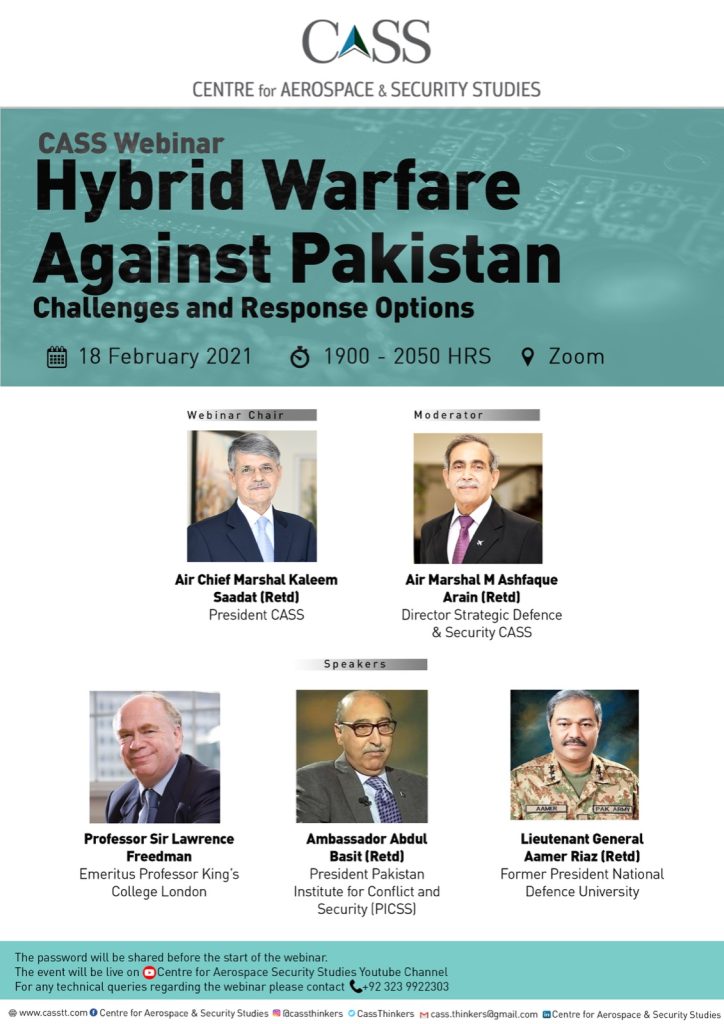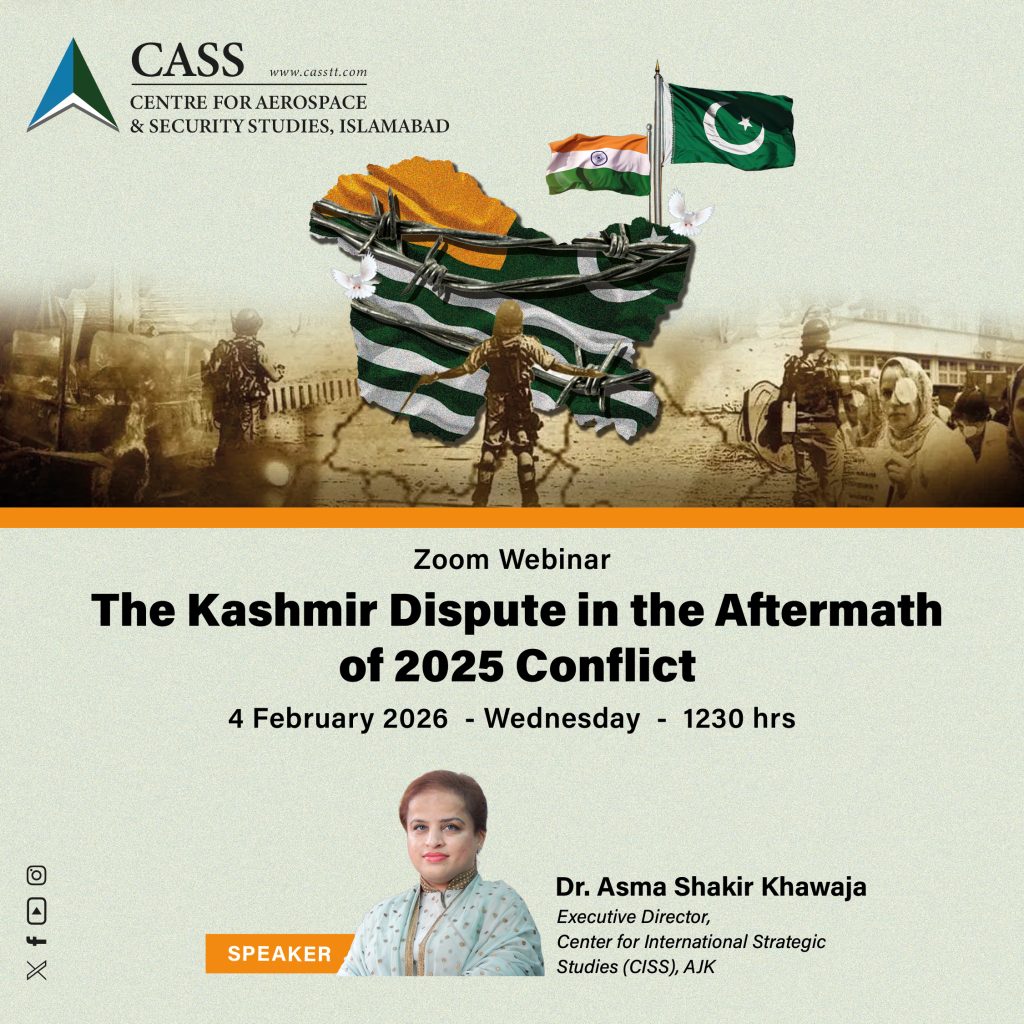Concept Note
Hybrid warfare as a term entered the modern strategic lexicon in early 2000’s, despite having been practiced in various forms for a long time. Commonly defined as the blend of both kinetic and non-kinetic options to offset the conventional power dynamics, hybrid warfare includes extensive use of tools like disinformation, propaganda, economic coercion, backing of proxy militia and cyber-attacks etc. by an adversary state to achieve its strategic interests. Although an old concept in military strategy, the growing costs of men and material in traditional warfare and the related jurisdictional concerns encourage states to opt for this peculiar mode of warfare. Besides, arrival of new technologies in 21st century also incentivizes the blend of different modes of warfare making hybrid warfare a practical option to meet the political objectives in today’s world.
Spearheaded by non-traditional use of power centres, not only great powers but various middle powers to engage in hybrid warfare to destabilize, demoralize and disintegrate their core adversaries. For example, India, the arch enemy of Pakistan, has continuously been waging hybrid war against Pakistan since its inception; only to be expedited recently with increased involvement in funding and training separatist militias in Pakistan, conducting economic subversion by politicizing international bodies like FATF etc. and carrying out diplomatic sabotage in the form of disinformation campaigns.
Pakistan like any developing country has its own set of vulnerabilities, the key being identity conflict, ethnic and sectarian divide, poor economy, poor governance, political instability and weak institutions, all of which serve as an ominous asset for its adversaries to exploit through the grey zone tactics. In the current era of subversion and sabotage, it is crucial to understand the realities of hybrid warfare especially by victim states like Pakistan to formulate a comprehensive national response. The webinar being organized by Centre for Aerospace and Security Studies (CASS) on ‘Hybrid warfare against Pakistan: Challenges and Response options’ aims to discuss the complex dynamics of hybrid war that are at play in the region and analyse how they are taking a toll on Pakistan’s national security. It further seeks to generate a timely and well-informed discourse to educate the general masses about the threat and chalk out a road map to help policy makers defeat this multifaceted onslaught more effectively.





